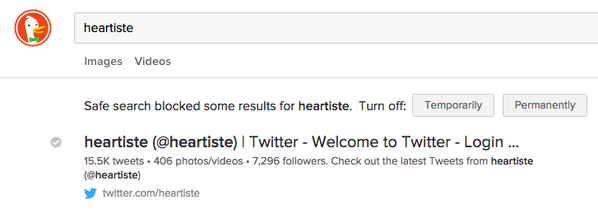Soft censorship
Back in the 1980s, a number of suburban political wives wanted to protect their special snowflakes from the bad content in rap, rock and heavy metal. They formed a group, the Parents Music Resouce Center (PMRC), which attempted first to get legislation passed to require warning stickers on album covers.
Then the PMRC-heads discovered another way to achieve the same thing. They called up and threatened record stores who sold material without stickers. They did not claim it was morally bad content they wanted to censor; they claimed it was dangerous. As with Mothers Against Drunk Driving (MADD) and other 80s phenomenon, this proved irresistible for store owners and insurers, who saw an advantage to being zealously “safe” in case an incident came about. Remember that this was a time when bands were being sued for the suicides and murders committed by their fans, even though there was usually another precursor — depression, drug use and divorce seemed to be the usual triad — that was more probably both the cause of the eventual violence and the reason for the appeal of certain bands, much as gangsta rappers often attract as their audience people who want to be gangsters more than they care about the music.
The point is that soft censorship was born. Why make a law when you could simply induce the sheep to flee to the other side of the corral by telling them the offensive material was “unsafe”? Any business interested in staying in business would gladly write off the risk and take on the positive of seeming to be safe for the cowed herd.
It was not a new idea, but its newness was its transfer to the cultural and social realm instead of the political. With the Civil War and the world wars, the American federal government established a policy of not just beating its enemies, but invading and smashing their economies. This paralleled the type of action that occurred in the Napoleonic wars where the threat was not only that one might be conquered, but that the victors would bring in their own delusional ideas and in the process, destroy culture and economy alike. Nations shied away from “extreme” ideas relative to the Revolution because to do so engendered the risk of invading revolutionaries who would then trash the place. Looking at the ruins of what was once the world’s foremost power, France, and later Russia, many countries decided like most of Scandinavia to sit out WWII and other conflicts.
In the 1960s, this doctrine transfered to the social sphere with government laws and court decisions which rendered opposition to civil rights as frowned upon and thus unsafe. Businesses were on notice that certain behaviors could attract federal suits, crucifixion in the media and worst of all, negative status as government contractors. They all lined up to conform after that. The 1980s saw this doctrine being taken up by private parties who quickly realized that all they needed to do was create legal risk for having certain ideas or behaviors. This only worked against people with ideas that rose above a baseline (“equal”) level of venality. For example, headshops could keep selling drugs and porners could keep selling hardcore abuse videos because their business was venality and thus legislative approval was all they needed to achieve. But a normal business had something at risk because it did not want to get shunted into the same category.
Soft censorship lives on today through the user complaint. Leftists motivate large groups of people to complain about something and the company that moderates the space in which it is displayed opts to leave it aside. For this reason, “hate speech” — a nebulous category which stretches from racial slurs to the notion that racial differences are genetic, including published science — is banned on most internet sites. They do not want the risk and have nothing to gain from a minority viewpoint that will not attract them the dollars of the herd, who are busy avoiding any public mention of such thoughts.
You can see the effects of soft censorship above. An outspoken men’s rights blogger, Heartiste, is now categorized as a “dangerous” site through search engine DuckDuckGo’s results. On the surface, this seems harmless; some people complained, so DuckDuckGo — which promotes itself as a privacy safe alternative — drops them from the listings. Users have the option to turn off safe search results, but most will not do it, because at work or at home no one wants to unknowningly enter keywords that despite their normal meaning also trigger popular porn or hate sites. If you type in “two sisters who act in movies” or “black metal fence to stop crime” you might accidentally get something… unique. And if your boss, girlfriend, friends, Mom or pastor/rebbe are looking over your shoulder, an awkward moment may result.
The only solution here is the one that should have been taken with “free speech” in general, which is to decouple political speech from free expression. Political speech comprises written documents like the one you are reading, speeches, books and other forms of analysis. It does not include spray-painted obscenities, nude pictures, or slurs. Free expression on the other hand includes all of those. By decoupling these two, we can also separate “dangerous” material — images, slurs and obscenities — from merely “dangerous ideas,” which have always constituted the cutting edge of social growth. Some of today’s taboos are tomorrow’s new frontiers. In the meantime, it is shameful that DuckDuckGo and other internet companies are browbeaten into this position by a public who, through inaction against obvious travesty, has rubber-stamped its approval on soft censorship.
Tags: censorship, free speech, free speech for the dumb, soft censorship, soft totalitarianism










